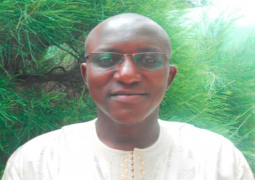He said currently it supports more than 326 fully-fledged projects and programmes, including regional organisations such as WAIFEM.
The foundation has also provided small, rapid response grants to innovative initiatives and it benefits more than 30 sub-Saharan African countries, he said.
He made this disclosure whilst delivering a speech at the opening of a five-day regional course on negotiation on public-private partnership agreement, held at the Coconut Residence on yesterday.
The course, hosted by the Central Bank of The Gambia, was organised and funded by WAIFEM.
The ACBF is Africa’s premier capacity building institute, established in February 1991, and it was the outcome of a partnership between African governments and the international donor community, he said.
“Its mission is to build sustainable human and institutional capacity for support growths, poverty reduction and good governance in Africa,” he stated.
He added that ACBF support is enshrined in six core competency areas namely, economic policy analysis and management, financial management and accountability, strengthening and monitoring of national statistics, public administration and management, strengthening of the policy analysis capacity of national parliaments and professionalisation of the voices of the private sector and civil society.
“The importance of building capacity in public private partnership (PPP) is one strategic objective that ACBF agreed with WAIFEM to achieve during the current funding which we provide to the institute,” he said.
The foundation had provided funding to other PPP initiatives on the continent, including an international workshop organised by the Nigeria PPP office in 2013, he went on.
“We also support WAIFEM to convene experts’ round-table discussion on financing infrastructure in Africa through the instrument of PPPs,” he further stated.
“It is a well-known fact that traditional forms of financing for development are under threat. Many economies, especially in sub-Saharan Africa contracting official development assistance face increased budgetary pressure, as a result of depressed commodity prices, inadequate private investment and remittances,” Dr Noumon said.
At the same time African countries need large investments in infrastructure for accelerated inclusive growth aimed at poverty alleviation and improvement in the quality of life of its citizenry, he continued.
He said different estimates of infrastructure deficit for sub-Saharan Africa have been made by various organisations and analysts.
The UNDP estimates that African infrastructure investment gap would require $120 billion annually to close it, he said, adding that about $30 billion per annum is needed to eradicate hunger globally, and between $25 and $36 billion are required annually for HIV/AIDS and education.
Furthermore, he added, another $10 billion would be required annually to control malaria and tuberculosis.
The World Bank factsheet notes that the cost of redressing Africa infrastructure deficit is estimated at US$38 billion of investment per year, and a further US$75 billion, he said.
He said the required spending by African governments translates into some 12 per cent of Africa’s GDP, and banks also project that “there is currently a funding gap of US$35 billion per year.
In light of constraints on public resources and fiscal space, sub-Saharan African countries would need to find innovative means of mobilising resources to finance development, he stated.



